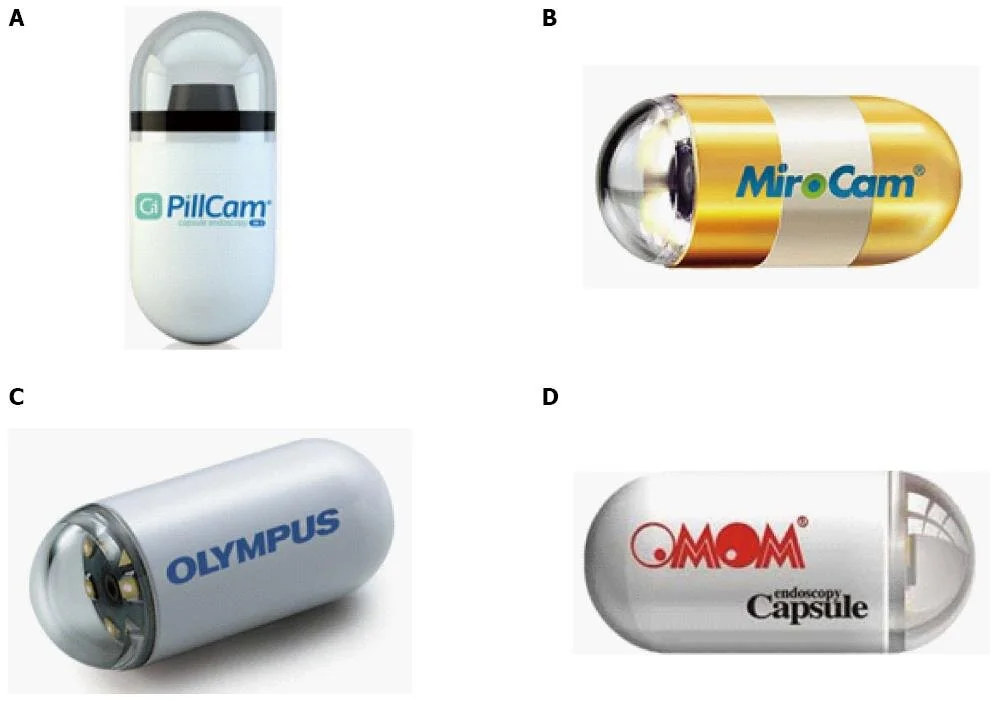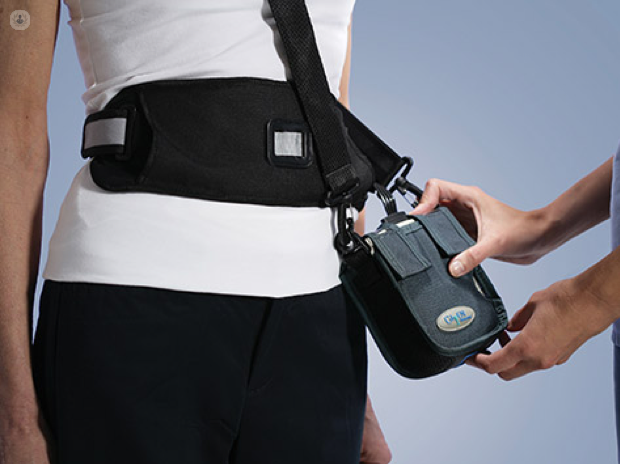Capsule Endoscopy
Small Bowel Capsule endoscopy £1,600
Colon Capsule endoscopy £1,950
Fees for self-funding patients include private en-suite room, nursing care, Bowel preparation medicine, Single-use Capsule Endoscope, Equipment fitting and removal, Dr Maiden’s fee, administration. Concessions with private health insurers.
Capsule endoscopy (also called a ‘pillcam’) uses an electronic, pill-sized photographic capsule that takes pictures of the GI tract. Prior to swallowing the capsule, a belt is worn and connected to a digital data recorder. This equipment is fitted at the hospital.
Capsule endoscopy is well established in examining the entire small bowel (small intestines or jejunum and ileum). It is approved for use by the National Institute for Health and Clinical Excellence (NICE) and is considered by the British Society of Gastroenterology to be the first-line tool in the investigation of small bowel disease. More recently, this technology had been applied to examining both the oesophagus or the colon too.
Small bowel capsule endoscopy. The capsule is swallowed like a tablet and can take over 54,000 pictures over eight hours or more, imaging the entire small bowel. During this process you will be able to leave the hospital if you wish. After roughly eight hours the equipment is removed and the results downloaded onto a computer workstation. You then pass the capsule naturally without the need to retrieve it. The files are subsequently reviewed and a report complied. The results will be discussed at your next out-patient appointment. You will not require any special bowel preparation to drink beforehand nor require any sedation for this test.
Colon capsule endoscopy. Similar to the small bowel capsule, this pill has a camera at each end and takes photos of the entire GI tract. In order to reach the colon it is necessary to take the usual bowel preparation for a colonoscopy and then ‘booster’ laxatives 2 and then 4 hours after swallowing the pill to ensure it reaches the colon around four hours after ingestion. The equipment is returned when the pill is confirmed to have passed on opening your bowels, around 6 to 8 hours after starting.
Who is it for?
The capsules are designed to look specifically at the oesophagus, the small bowel or the colon, all of which we are able to offer. Indications may be altered bowel habit or bleeding (either overt or hidden). If you are often excessively tired you could be suffering from anaemia (low red blood cell count). A common cause of anaemia is bleeding within the gut.
The capsule can help to identify the cause of anaemia, diagnose bowel conditions, or identify or exclude conditions such as irritable bowel syndrome (IBS) or inflammatory bowel disease (IBD). Pain, diarrhoea or constipation can be symptoms of underlying intestinal problems. Diseases, such as Crohn’s Disease and Ulcerative Colitis, can cause inflammation (or even ulceration) in your bowel. More serious diseases may also need to be ruled out – especially if you have visible bleeding from the back passage, which should never be ignored.
This diagnostic application is particularly beneficial for patients who display obscure bleeding that persists or recurs, for detection of Crohn’s and Coeliac disease and for those with a change in bowel habits where more traditional endoscopy may either be contraindicated or a less invasive means of investigation preferred. It is a revolutionary pain-free device which enables us to see far more of the small intestine than ever before.
Dr Maiden offers these innovative, pain-free investigations at either the Spire Tunbridge Wells Hospital in Fordcombe or at Tunbridge Wells Hospital, Kent. Please contact us for more details (see Contacts).


